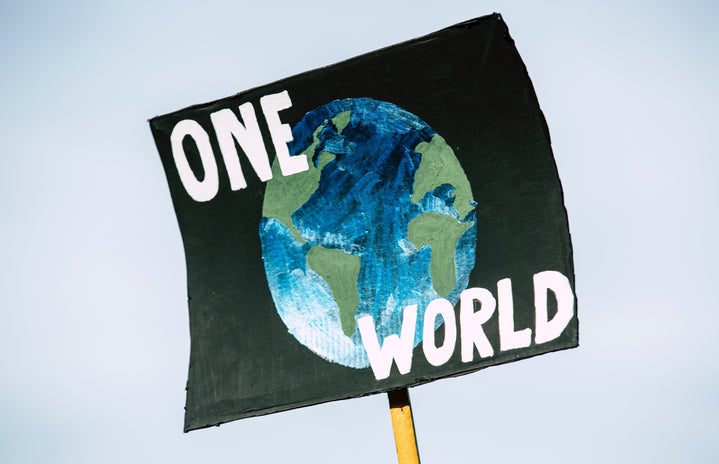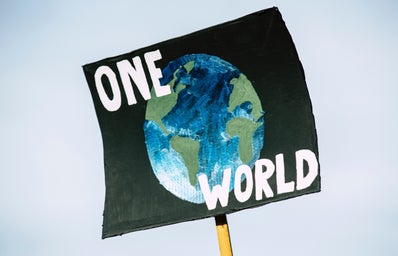At the beginning of November, tens of thousands of world leaders, advisors, businesses, climate advocates, lobbyists and protestors will flock to Glasgow from every corner of the globe. Their purpose? To participate in COP26, an international climate change conference with high stakes and high potential. But what exactly is COP26? And why should we care?
Question One: What is COP26?
The event’s full name is ‘Conference of the Parties’, which refers to the leaders from 197 countries that signed the United Nations Framework Convention on Climate Change in 1994. Every year, a different country hosts talks with delegates from each national government in an effort to further international efforts of combatting the adverse effects of climate change. The summit is made most comprehensible when broken into three main categories: negotiations between countries and experts, exhibitions and fringe events, and climate talks and events for the public held around Glasgow. This year’s conference will be the 26th of its kind.
Within the almost-three decades that the UN has been gathering countries for these climate summits, climate change has turned from a fringe issue to an international priority. Unfortunately, last year’s conference was postponed due to COVID-19, and the delay makes Glasgow’s event, which will run from 31st October to 12th November, even more urgent. As a joint president of COP26, the British government is hosting the main event in Glasgow in cooperation with the Scottish administration.
Question Two: Why Does it Matter?
Although these UN climate change conferences occur each year, COP26 is especially highly-anticipated because it marks five years since the Paris Agreement was born. At that ground-breaking conference, all member countries agreed to cooperate on limiting global warming to well below 2 degrees, adapt to the changing climate, and provide funds to finance these goals. These were new and vitally important commitments, because they took into serious consideration the fact that even a fraction of a degree of global warming will lead to more lives lost, habitats destroyed, and livelihoods ruined.
Under the legally-binding Paris agreement, signatory nations agreed to bring forward plans showing how and to what extent they intended to reduce carbon emissions. These are known as Nationally Determined Contributions, or ‘NDCs’ for short. Leaders committed to returning to the conference every five years with an updated scheme, demonstrating their most ambitious plans at that time. The hope is that with building pressure and global accountability, countries will commit more and more substantially to their emission reduction goals, until the 1.5 degree limit is within reach.
Rebecca Foster is a St Andrews alumnus who will be attending COP26 as part of her internship with think-tank Bright Blue. Rebecca spoke to me about this event’s importance in fostering change and building momentum for the crucial work of tackling climate change worldwide. “Being able to do this at a global level is significant because, although climate change has to be tackled at a national level, if we can have a global agreement, it creates motivation, transparency and accountability.”
Scientists believe that the ten-year period from 2020-2030 will be absolutely crucial for preventing the most catastrophic effects of climate change. So, the Glasgow summit is a vital test for the Paris Agreement, which cannot afford to fail.
Question Three: What Should We Expect?
The overarching aim for most climate advocates and many attending governments is to limit global warming to approximately 1.5 degrees. More specifically, the UK’s objectives for COP26 have been summed up by Prime Minister Boris Johnson as ‘coal, cars, cash and trees’. The host government hopes to ‘consign coal to history’ at the summit, as well as mobilise at least twenty billion dollars towards climate initiatives; accelerating the switch to electric cars, and radically cutting emissions from deforestation and forest degradation.
Each of these targets face significant opposition by other powerful nations. They also face criticism for failing to address the priorities of the globe’s poorest countries, who are less concerned about cars and coal plants, and more concerned about addressing the climate change they are already experiencing. In fact, many have called for the conference to be postponed again, since coronavirus vaccine inequality makes it difficult for representatives from some developing countries to attend.
Promisingly, though, 110 countries proposed improved climate change plans to the UN in advance of the summit. However, many of the larger emitters missed the deadline, which was repeatedly extended. Saudi Arabia, India, and China were among them. Meanwhile, the Australian government has only reaffirmed previous plans, while Brazil has even weakened its original plan.
Rebecca is cautious about the potential of COP26 to achieve real change, warning that “having a conversation is not enough.” She argues that without substantial and actionable commitments to financing proposed climate measures, there is no guarantee of results. Other experts suggest that a failed COP26 may look like limited delivery on the abovementioned goals, an insistence on countries continuing to exploit their oil reserves, or the absence of an actionable pledge on reducing emissions. On the other hand, a success might constitute a commitment to significant climate financing for developing countries, genuinely improved NDCs and a finalisation of the Paris rulebook on global pollution pricing.
At a moment of intensifying global urgency about spiralling climate change and increased awareness of the need for climate justice, COP26 is shaping up to be a pivotal moment in the fight against global warming. It remains to be seen whether we will look back on the Glasgow summit as a wasted opportunity, or as a much needed turning point in the battle for our planet’s future.


